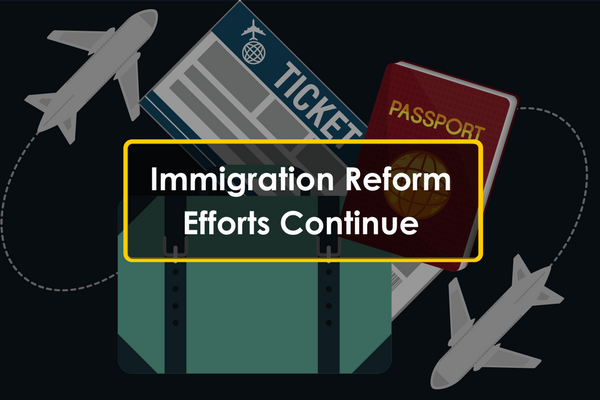This week Senator Orrin Hatch (R-Utah), Chairman of the Senate Republican High-Tech Task Force, introduced amendments to the Senate’s immigration legislation that target high-skilled workers. The amendments were part of a broader immigration reform package in Congress and, although the legislation didn’t pass the Senate, we’re glad high-skilled workers weren’t overlooked in the process.
Specific provisions included exempting those who have a master’s degree or higher and are sponsored for a green card from the annual limitations on H-1B visas; raising the minimum salary threshold from $60,000 to $100,000 per year before salary-based exemptions occur; and eliminating the numerical cap on how many green cards are issued per country (currently there is a 7% cap on employment-based immigrants from any one country). The amendments would have also allowed spouses of H-1B visa holders to get work permits, otherwise known as the H-4 visa, something the Trump administration has considered eliminating.
These amendments came amidst a broader immigration review and reform package that swiftly failed, along with three other proposals, on Thursday evening. This isn’t the first time in the past six months that Congress has offered legislation for high-skilled worker permits, such as the Protect and Grow American Jobs Act and RAISE Act. Both were unsuccessful.
Thursday morning National Journal hosted a timely webinar on immigration. According to their research, there were 534,365 H-1B visa holders in the U.S. in 2016 with a majority (66%) from Asia, mostly south and east Asian countries like India and China. Employment-based migration comprises 20% of the annual limit on permanent immigration to the U.S. These numbers alone make it clear that changes to the immigration system are going to impact everyone: current visa holders, employers, and future workers.
Amid important discussions of DACA, refugees, and family-based immigration reforms, we are pleased to see that Congress is exploring ways to make the worker-based visa system better. The H-1B visa is instrumental to startups who need high-level, know-how talent and don’t have the resources to train developers in the early phases of their company.
Senator Hatch’s amendments were short-lived but the Senate is likely to continue working on an immigration proposal. Whatever immigration bill comes out of Congress must go to the president’s desk, and the administration’s approach to immigration through its “Buy American, Hire American” initiative has raised eyebrows and threatened the H-1B visa process the tech community relies on more than once.






